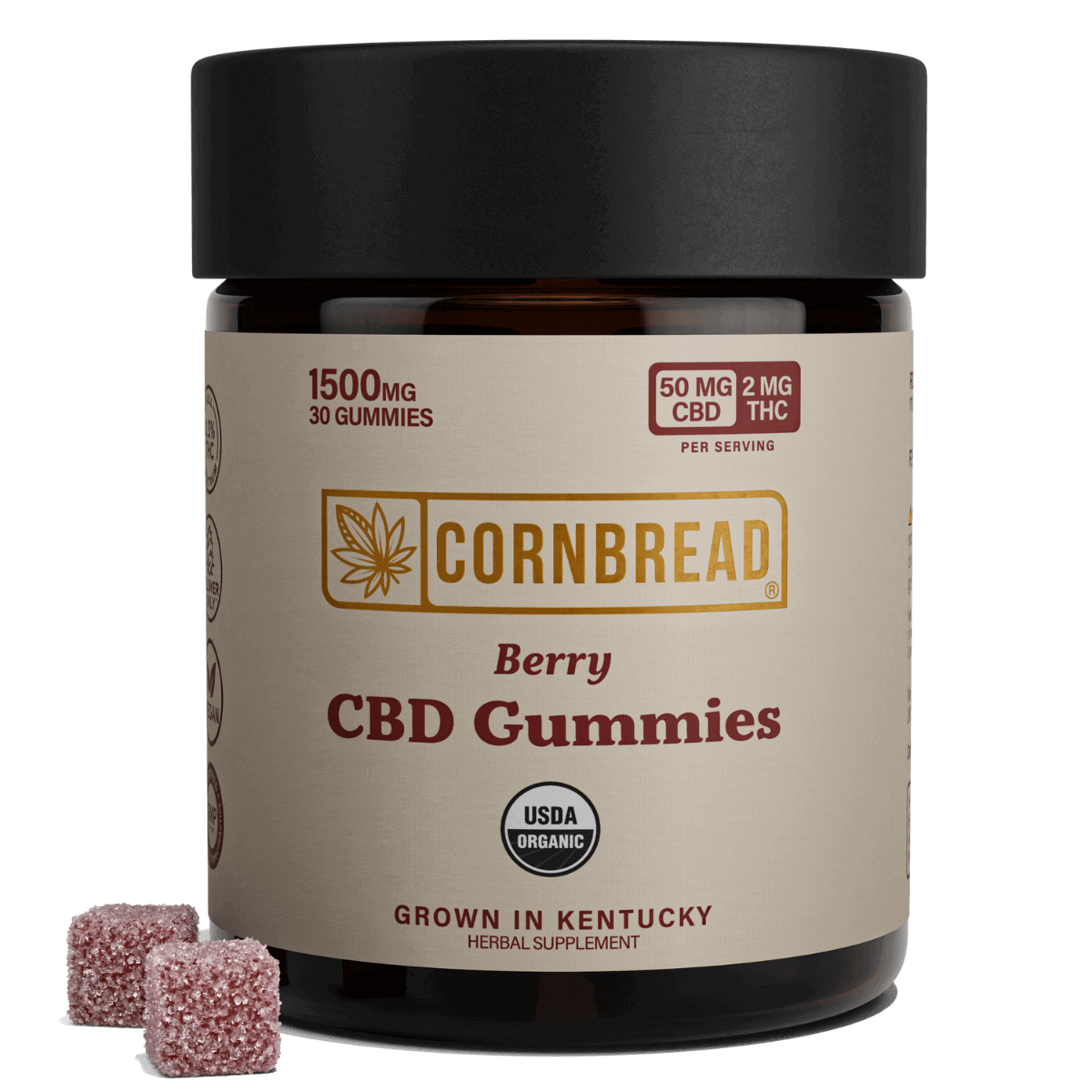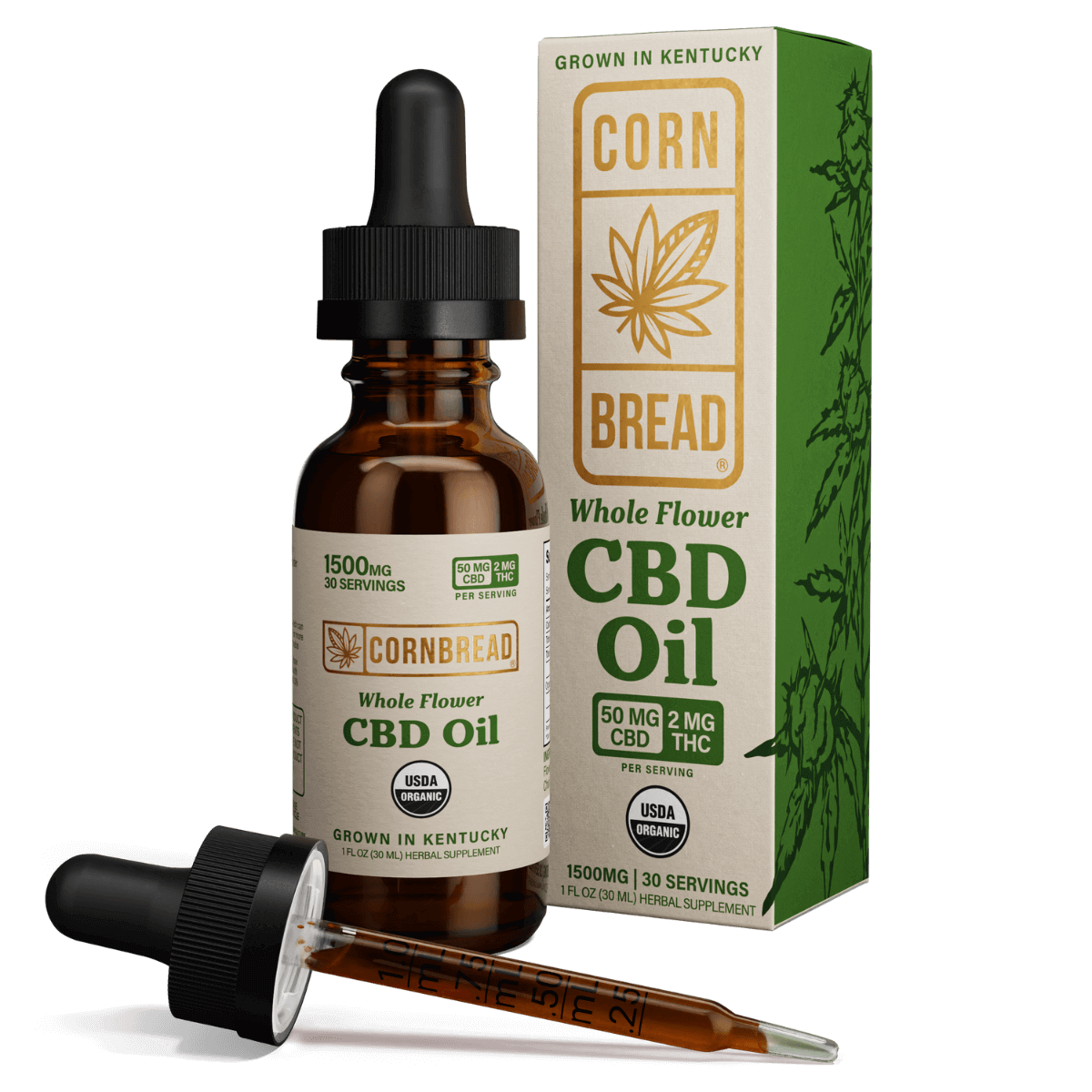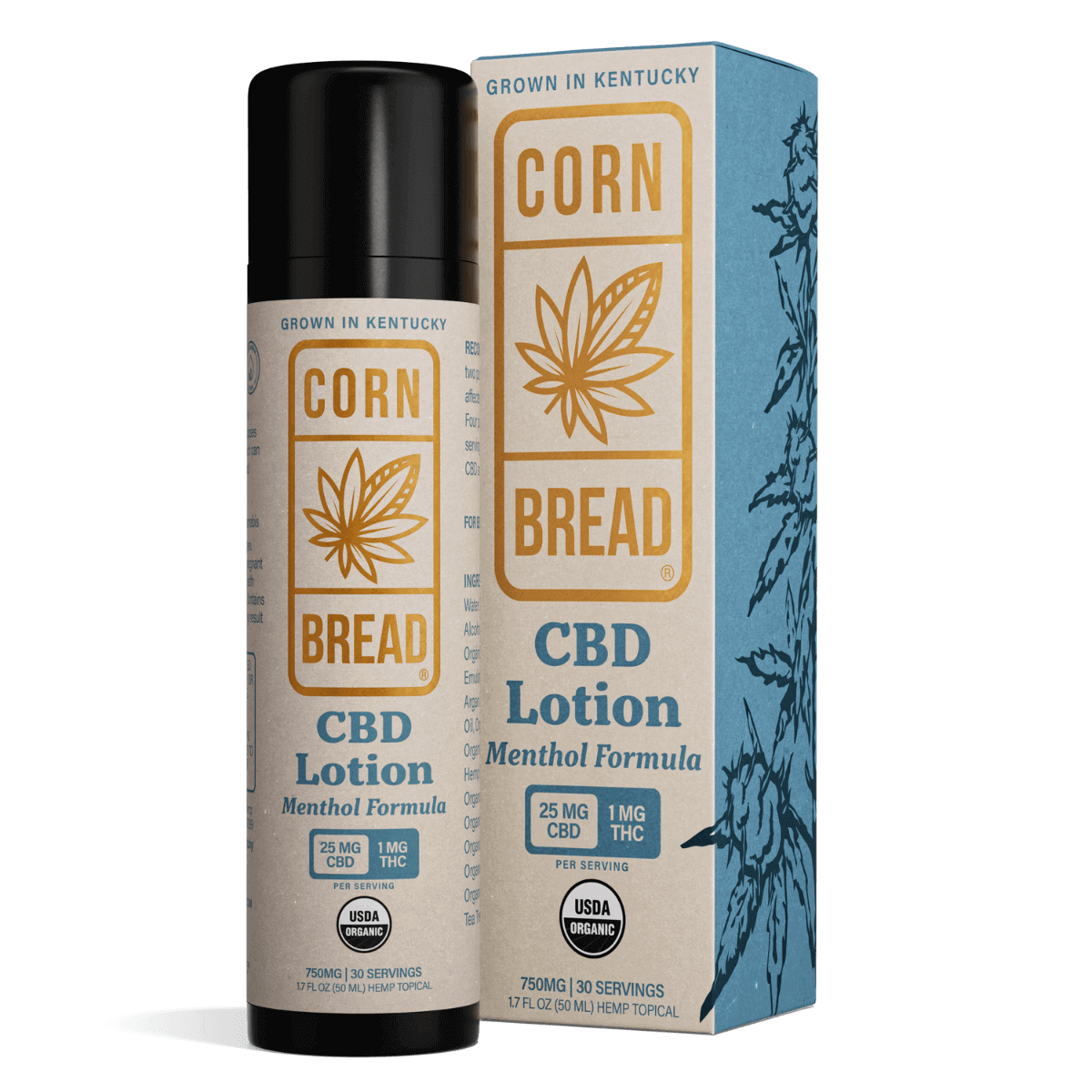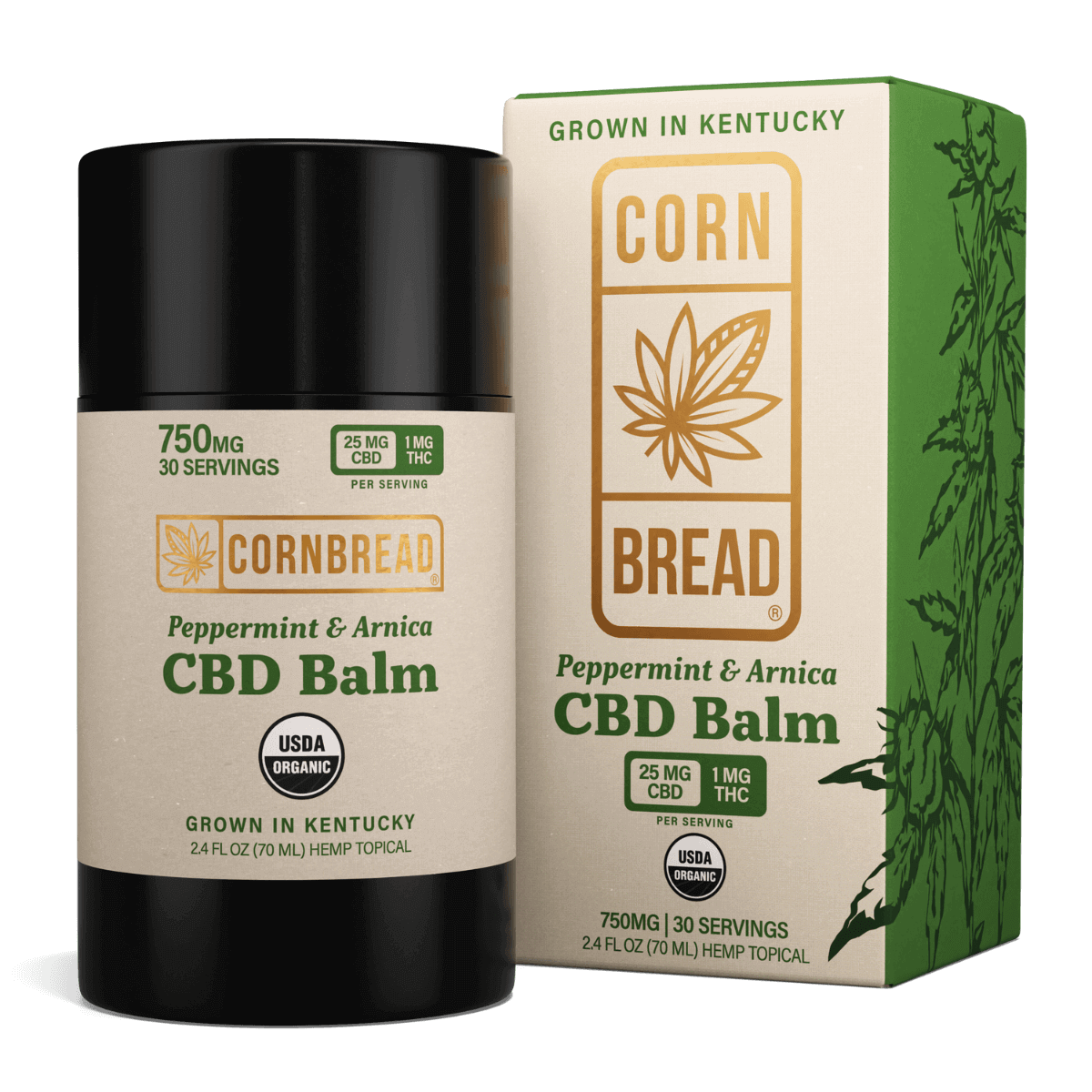Table of Contents

Introduction
When you receive your order from Cornbread Hemp, you might have noticed our custom holographic sticker that seals the top of the product. Yes, it's pretty, but that's not why we put it there. It's there to ensure you're receiving an authentic Cornbread Hemp product. It's a necessary feature because counterfeiting is widespread among CBD products.
Back in 2019, we discovered that Cornbread Hemp had been counterfeited in the United Kingdom. A sharp-eyed British man thought the “Cornbread” products he bought looked a little “dodgy.” So he sent us an email with a picture. He asked: “Are these your products?”
We immediately responded, “Absolutely not!”
It was hard to believe. We felt sick over the news. We had been counterfeited by a global criminal operation. This set off alarm bells here at Cornbread Hemp HQ, and made us look for a solution.
HOW TO SPOT FAKE CBD OIL
You may have heard about health problems caused by counterfeit vaping products, like this report from NBC News. These fake products contained harmful ingredients that could be deadly. These issues came about when sketchy counterfeiters began to copy labels and produce knock-off cannabis products.
Even before this news broke, Cornbread Hemp took our product safety very seriously. That's why all our products are tested by Kaycha Labs to ensure accurate levels of CBD and legal levels of THC. There’s no federal requirement to test beyond THC level. But we go the extra mile and test for pesticides, heavy metals, microbials, solvents, and more.
Are you new to reading CBD lab reports? Here’s a helpful guide to teach you how to read a COA.
HOW TO PREVENT COUNTERFEIT CBD
After we discovered counterfeit Cornbread Hemp products in the UK, we started looking for a solution. How can we guarantee that our products are authentic when someone buys them in a retail setting? We spent months developing a system to ensure that this problem never happened again.
That hologram seal is the result of months of work to ensure you're receiving an authentic Cornbread Hemp product. The hologram contains two different layers of Cornbread Hemp logos, which are activated at different light exposure levels. But holograms alone are not enough because holograms can be counterfeited, too.
HOW DOES OUR VERIFICATION SYSTEM WORK?
Therefore, we combined the holograms with a multi-step process to ensure authenticity. That's why every holographic seal also contains a QR code, a scratch-off PIN, and a serial number.
Here’s how it works:
-
Step 1) When you receive our product, you can scan the QR code. That opens an authentication portal on your smart phone’s web browser.
-
Step 2) Scratch off the "SCRATCH HERE" panel to reveal the 4 digit PIN under the QR code.
-
Step 3) Enter the PIN on the web page.
-
Step 4) Our system then authenticates that your product is authentic with a green checkmark. If the PIN has been used before, the web page will alert you that you have a counterfeit product.
UNIQUE AND TAMPER-PROOF

Every hologram seal contains a unique serial number. This helps us track our batches of products, and helps our system identify your individual product when you enter the four-digit PIN into the tracking page.
Additionally, the hologram sticker has a tamper-resistant backing. This means that it's impossible to remove a hologram seal from one unit to another without leaving a honey-combed pattern on the original item. And it makes it impossible to use the hologram seal a second time on another item.
ACCESS TO LAB REPORTS
This verification process also leads you directly to your product's lab report page, where you can verify directly that your Cornbread Hemp purchase is accurately labeled, legal, and free of any dangerous contamination. On our lab reports, also called certificates of analysis or COA's, you can find a detailed listing of the following test results:
-
Cannabinoid potency — This first test can tell you a lot about the product, including:
-
Is it legal? — If the delta-9 THC level does not exceed 0.3 percent, then the product is legal under federal law.
-
Is it accurate? — If you are purchasing a 750 mg CBD Oil from us, then the total CBD count on the lab report should be 25 mg/g. Our extra strength CBD oils should be 50 mg/g. This is how you can tell if the label is accurate.
-
Is it full spectrum? — A true full spectrum CBD oil will have a range of cannabinoids detected on the lab report, not just CBD and delta-9 THC. Cornbread Hemp's lab reports regularly show detectable levels of CBDa, CBN, CBDV, CBC, and CBG.
-
Terpenes — Terpenes are an important element to full spectrum CBD products. That's why we test for them. In our extra-strength Whole Flower CBD Oil, you will see that the lab report detects trans-caryophyllene, alpha-humulene, and alpha-bisabolol.
-
Safety — Although not required by any law or federal regulation, Cornbread Hemp tests all our products for a range of potential contaminants to ensure product safety. These include:
-
Pesticides — Cornbread Hemp uses only USDA organic hemp flowers in our products, so there's never any pesticides used on our farms. But don't take our word for it. This test looks for dozens of potential pesticides down to microscopic levels of parts-per-billion.
-
Residual solvents — This is an important test because Cornbread Hemp uses organic sugarcane ethanol for our extraction process. If we do this step incorrectly, then ethanol would show up on the residual solvent test. A result of "ND" means "not detected," and assures our customers that we have processed our extract correctly.
-
Heavy metals — This is another important test because hemp is a known bio-accumulator. This means that the hemp plant draws up all the compounds found in the soil, whether beneficial or not. If hemp is grown in soil contaminated with heavy metals, then those heavy metals will get into the hemp and potentially into the CBD products made from that hemp. Cornbread Hemp doesn't have this problem because we only use hemp grown on USDA organic farms. But don't take our word for it. Look at the heavy metal test results to be sure.
-
Microbials — This is a test for bacterial contamination. If CBD is produced in unsanitary conditions, then it could contain nasty things like salmonella or e. coli. This test makes sure that doesn't happen.
-
Mycotoxins — Mycotoxins are toxic products of molds and fungus. It's not something you want in your CBD products, and this test ensures that Cornbread Hemp's products are free and clear of them.
SETTING THE INDUSTRY STANDARD IN CDB SAFETY
Cornbread Hemp is the only CBD brand to offer USDA certified organic CBD products that are protected this way. The better the CBD brand, the more likely we are to be targeted by counterfeiters. This may sound like an extreme precaution, but we learned the hard way that it is absolutely necessary.
To our knowledge, no other CBD brand achieves this standard of excellence. That's why knowledgeable CBD consumers continue to flock to Cornbread Hemp. These details are not optional. They are critical to protecting the integrity of our products and our relationships with our customers.










 Log in
Log in























